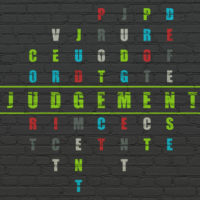Understanding Evidence: The Chain of Custody

Evidence is the foundation of any legal case. As such, it is critically important that criminal defendants are able to ensure that all forms of evidence being presented against them are legitimate. Before the prosecution can submit a piece of evidence at trial, they must first prove that they can authenticate the evidence. In other words, the prosecution must be able to establish that the piece of evidence in question is what they say it is and that it has not been tampered with at any point in time. One of the primary means of evidence authentication is analyzing the chain of custody. The chain of custody refers to the chronological documentation of who has accessed the evidence and where it has been kept. The state must account for each and every pair of hands that came in contact with the evidence after it was in police custody.
The Right to a Fair Trial Must Be Protected
Ensuring that evidence is legitimate is a necessary part of protecting a defendant’s right to a fair trial. The Sixth Amendment of the U.S. Constitution grants all parties that have been criminally accused protections against unfair actions by the state. If Florida police officers and state prosecutors fail to properly document where a piece of evidence has been and who has accessed it, that evidence may have been tampered with; it might be contaminated and it may even be fake. There is no way to ensure a fair trial without reasonable efforts to ensure that validity of the evidence presented in the case.
The Evidence Was Mishandled: What Remedies are Available?
If evidence has not been properly handled in your case, your Tampa criminal defense attorney can take action to protect your rights. The remedy available will ultimately depend on the extent that the evidence in question was mishandled:
- For cases in which there are minor gaps in the chain of custody, that information should be presented to the jury, and jury members should be allowed to weigh the potential flaws against their overall view of the case evidence.
- For cases in which there are major gaps in the chain of custody, then the evidence is simply invalid. In cases where major gaps are present, the evidence simply should not be allowed into the courtroom. Allowing this highly unreliable evidence into court could bias the jury against an innocent defendant. Your attorney will not let improper evidence be used against you. By filing a motion to suppress, your lawyer may be able to keep the problematic evidence out of your trial.
Were You Arrested in Florida?
You need to take immediate action to protect your rights. Our aggressive criminal defense attorneys are standing by, ready to help you. To request a free, fully confidential review of your case, please call our Tampa Bay office today at 813-242-4404. At The Pawlowski//Mastrilli Law Group we protect the rights of individuals throughout the Tampa region, including in Dover, Brandon, Thonotosassa, Lithia and Durant.
Resource:
law.cornell.edu/wex/motion_to_suppress










